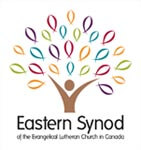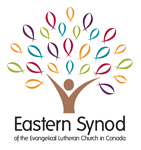
EASTERN SYNOD POLICY ON
ACCESSIBILITY FOR PEOPLE WITH DISABILITIES (AODA)
ACCESSIBILITY FOR PEOPLE WITH DISABILITIES (AODA) POLICY
This policy is intended to meet the requirements of the Customer Service Standards included in the Integrated Accessibility Standards under the Accessibility for Ontarians with Disabilities Act, 2005. It applies to the delivery of all programs and services provided by the Eastern Synod office. The Eastern Synod shall follow the principles of dignity, independence, integration and equal opportunity.
DEFINITIONS
Customer includes colleagues asking for assistance, members, volunteers, partners, children and individuals accessing goods and services of the office of the Eastern Synod.
An Assistive Device is a tool, technology or other mechanism that enables a person with a disability to do everyday tasks and activities such as moving, communicating or lifting. Includes, but not limited to: qualified interpreters, walkers, assistive listening systems, television captioning and decoders, video tapes, both open and closed captioned, TTY/Ds, transcriptions, readers, taped texts, Braille and large print materials. Any similar device or service that is needed to make spoken or aural language accessible is also considered an auxiliary aid.
Disability means any degree of physical disability, infirmity, malformation or disfigurement that is caused by bodily injury, birth defect or illness and, without limiting the generality of the foregoing, includes diabetes mellitus, epilepsy, a brain injury, any degree of paralysis, amputation, lack of physical co-ordination, blindness or visual impediment, deafness or hearing impediment, muteness or speech impediment, or physical reliance on a guide dog or other animal or on a wheelchair or other remedial appliance or device a condition of mental impairment or a developmental disability, a learning disability, or a dysfunction in one or more of the processes involved in understanding or using symbols or spoken language, a mental disorder, or an injury or disability for which benefits were claimed or received under the insurance plan established under the Workplace Safety and Insurance Act.
Sensory Impaired means a person who is hard of hearing, deaf, partially sighted and/or blind or physically unable to speak.
Sign Language and Sign Systems mean visual or tactile ways of communicating thoughts, ideas and feeling through American Sign Language or manual signs and gestures with specifically defined vocabulary.
Continue Reading:
